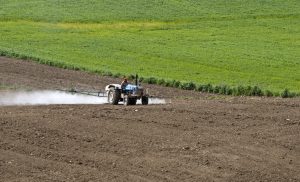Agricultural Impacts on The Environment
Modern agriculture ensures food affordability, increases food supply and sustainability, and also produces more biofuels. But it also leads to environmental problems due to the use of hybrid seeds of high yielding capacity and plenty of irrigation water, pesticides, and fertilizers.
Contamination of Groundwater
The groundwater is a vital source of irrigation water. When nitrogenous fertilizers from the agricultural fields leach into the soil, it contaminates the groundwater. Excess nitrate levels in the groundwater can result in serious health hazards. The other common element found in lawn fertilizers is phosphorous, which is recommended for optimal plant growth. However, too much application of phosphorous pollutes water bodies and aquatic life. Inorganic phosphorous binds with soil as soon as it is applied, but when left on leaves and lawn clippings, it may find its way into the gutters and potentially pollute natural water sources.
Soil Erosion
Excess water supply usually results in removing the farmland’s top fertile soil, leading to loss of nutrient-rich soil, thus affecting the farm’s productivity. It also causes global warming because the water bodies’ silt causes a release of carbon from organic materials.
Waterlogging and Salinity
When farm drainage is not managed correctly, it leads to soil salinity, resulting in low productivity. Plant roots are denied sufficient air for respiration, causing reduced crop yield and low overall mechanical strength.
Excess Use of Pesticides
Farmers around the world use pesticides to boost crop yield and destroy pests. In the early days, mercury, sulfur, lead, and arsenic were used to eliminate pests. Unfortunately, most of it also killed the beneficial pests. Many pesticides are now biodegradable and become harmful when linked to human beings.


